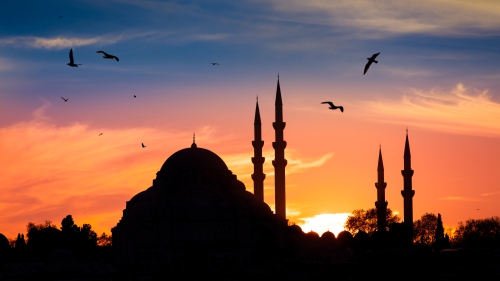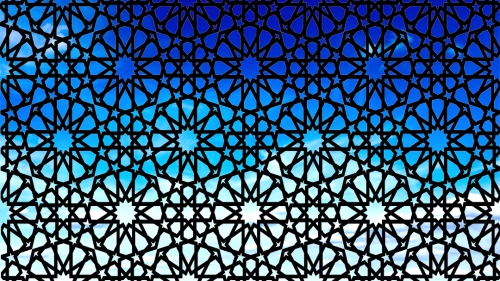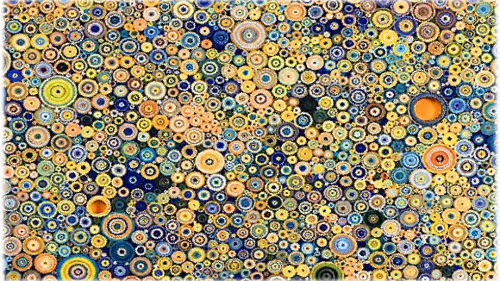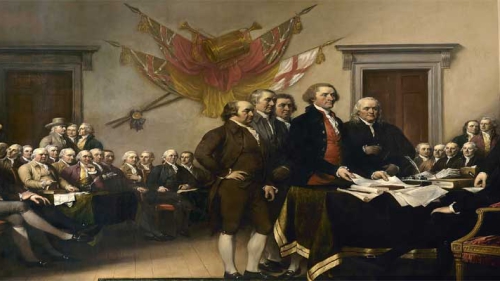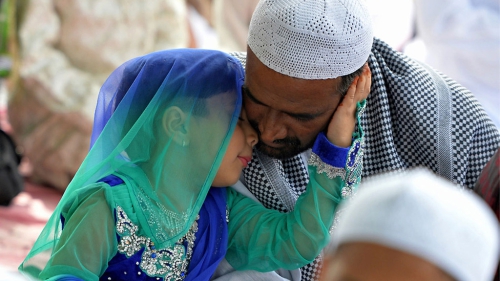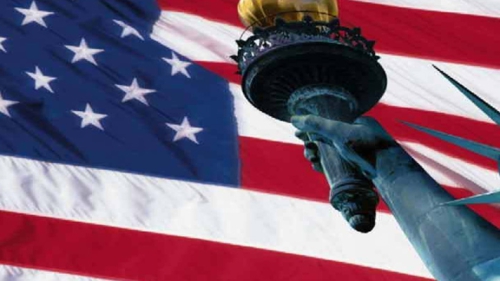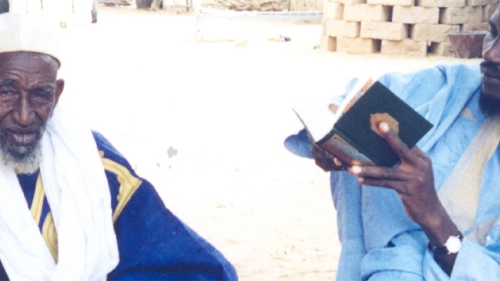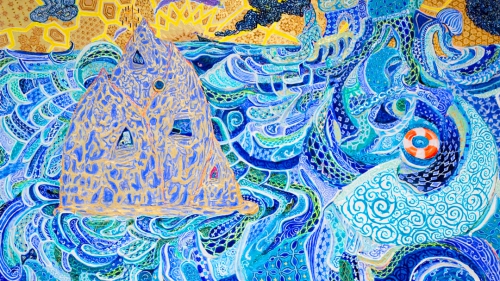Remembering My Father
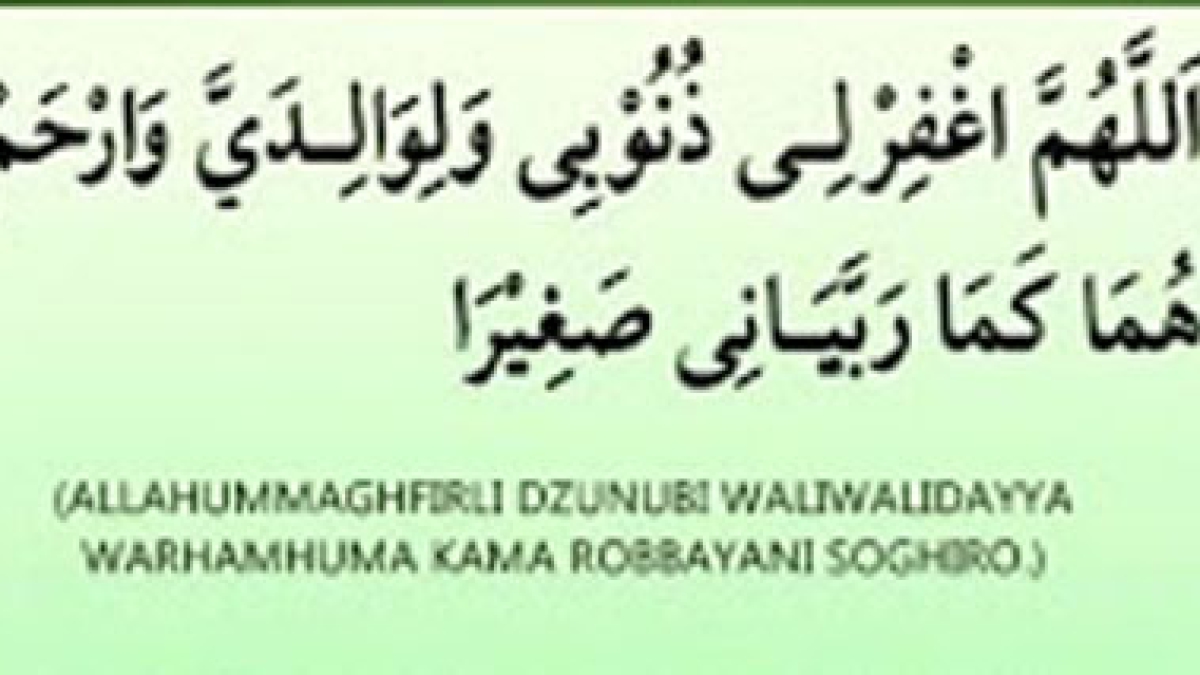
Maulana Muhammad Muslim Saheb was one of the founders of Majlis-e-Mushawarat (the apex consultative body of Muslims) in India. He was a member of the Jamaat Islami's shura council for more than 3 decades and former editor of the Daily Dawat. His son Dr. Aslam Abdullah reflects on the life of his father.
________________________________
There were days when we did not have enough food to feed ourselves and he would advise us to learn how to live within means. There were occasions when he would ask us to donate the monetary gifts we received during Eid celebrations to the needy and the poor we never knew. There were times when he would buy us second hand clothes from the flea market while wearing a sherwani (long jacket) without a shirt because he had given that to someone he found shirtless in the streets. There were moments when we saw him giving a helping hand to a mehter (janitor) carrying human waste. There were also days when we saw him fasting for days because the food he would consume might serve his children or even guests. There were nights when he would ask us to sleep on the footpath out in the streets because there were homeless elders or children and women who had nowhere to go and they had to be accommodated in our home.
In our young and tender age these images were imprinted in our mind but we did not know why he was doing what he was doing.
There were recollections when we saw him standing up late at night praying alone crying. There were mornings when we saw him focusing on a page of the Quran gazing in the horizon for hours not even responding to our questions. There were hours when we saw him waking up in the middle of the night writing on a piece of paper.
We observed all this but we were unable to understand why he was doing what he was doing?
There were also times when we watched him go alone risking his life to pacify mobs that were advancing to Muslim homes to destroy them during Hindu-Muslim riots. There were occasions when we saw from the roof of our home his efforts of persuading angry Muslim mobs not to harm the Hindus who were living in our neighborhood. We knew what he was doing but we did not understand why.
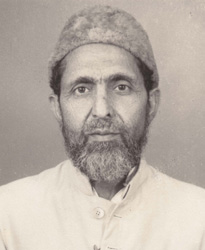 |
There were times when he would not return home for several days or months and years and we would not know where he was only to discover later that he was in prison for days or months or years for writing something that was objectionable to authorities who had accused him of defying them.
But, we also saw him totally submissive and quiet when his elder brother would admonish him or yell at him for not informing him of the financial strains our household had gone through. He would smile and politely refuse any monetary support his own elder brother would offer in times of crisis.
We saw India's President Shankar Dayal Sharma visiting our depleted one-bed room house in the crowded Old Delhi offering condolences at the demise of his elder brother in the quietness of late night and we also saw Inder Kumar Gujral, a powerful minster in the cabinet of Mrs. Indira Gandhi visiting our family when he was in prison during the emergency. We remember the times when Kuldip Nayar and other journalists would visit our house to have a discussion with him in the room while we were running around and we saw several prominent Muslim leaders and scholars sharing whatever food we had during long hours of discussion.
We grew up observing all this. I remember the day when I returned home shirtless and shoeless on a cold night, my mother asked me several questions. He was attentive to what I was saying. I told her that I had given my shirt and shoes to a person whom I found semi naked in the streets of Delhi.
I saw his face lit up and I still remember what he told me with a smiling face on that night: It sends goose bumps whenever I recollect that. He said; "this is the beginning of your understanding of Islam and the Quran." I did not understand then how would giving a shirt and a shoe teach me Islam and the Quran. Only when I learned to read the Quran with translation and then in Arabic language, I realized what he had meant.
We learned Islam observing him. He never gave us long lectures on the importance of the Quran or Islam. He never recommended any specific books for us to develop our comprehension of the we were born in. We did not even have the money to buy the books published by his own organization and he would never ask for a free copy of any. But he taught us how to pray and how to read the Quran through personal example. We acquired our basic understanding of Islam and Quran while imitating him.
Later on when we began to read what he was writing in Daily Dawat or had written in Daily Nadeem, a newspaper he was editing before moving to Delhi from Bhopal, his native town, we realized that he was probably writing his own journey to Islam because we had seen him walking that.
In his understanding of the religion, the dignity of human beings regardless of their background was central. Islam's essential message, as we discovered from his writings, is to create a community of believers that would not allow the weakest and the most vulnerable to suffer humiliation because of lack of means and resources. When his brother would tell him that it was impossible to change the world, his typical response was, "one has the capacity to change oneself."
We discovered in his writings that he would advocate equality of human beings regardless of gender or religious differences. All human beings are created by the will of Allah and all of them deserve a dignified existence.
We found out in his writings strong advocacy of the right to dissent in mattes that are not already settled by the divine writ as explained by the Prophet. People would differ with him on many issues, but he would smilingly and politely conclude the conversation by saying "I hope you are right." I never found him saying a disrespectful word against those who were against him.
We discovered in his writing acceptance of all genuine practices in Islam. We saw him visiting masajid of Shia community as well as Bohra community and encouraging them to work with the Muslim community on broader issues to live a genuine Islam.
We also discovered in his writings the importance of modern education for expanding and explaining Islam's basic message.
He wanted to see Muslims become an effective component of Indian society with full participation in all spheres of life permitted by Islam regardless. He advocated political participation, social welfare, academic excellence and unity of purpose within the Muslim community.
We saw him working lengthy hours for helping Muslim organizations and groups thrashing out their differences and working for a common cause. People would come and talk about others in a hostile manner, and he would listen trying to persuade them to change their opinion of others. He would never repeat the assertions of people about each other. Rather, he would give a positive perspective on each organization and individuals. We never saw him taking a day off from his work not even during his illness. He at one time was diagnosed with tuberculosis, but he continued to write his column even during the illness.
When he was active in organizing the Muslim Majlis-e-Mushawarat after the wave of bloody riots in different parts of India, he was accused by many including his friends to have compromised the position of his organization. Yet this did not change his relations with them. He was still their friend. Many of these people visited him at home and rebuked him of changing the nature of the work of his organization; he would patiently listen to them without defending himself personally.
He was not a scholar as he did not have big degrees attached to his name. He never went to an institute of higher learning. He did not memorize the entire Quran and he did not master any books of ahadith. But he knew how to respect knowledge. He lived it. He never sought any lime light for anything. He was an average person in terms of his educational skills as he had not gone beyond high school because of his family conditions. He had lost his parents when he was under the age of 4. He was raised by a friend of his grandfather. He studied Arabic, Persian, Urdu, English and Turkish from his grandfather. He never pretended to be a scholar. However, he used the knowledge that he gained from his basic understanding of the Quran and the teachings of the Prophet in an effective manner to the best advantage of his community and faith. He never hesitated to speak the truth even if he was in the presence of a prime minister or anyone else.
His vision was simple. The Quran and the one who introduced the Quran to humanity are the sources to acquire basic traits of our character. Building character is a life long process and one should not wait until the perfection to start working on the ideals of the Quran. He devoted his life to this ideal. When he was part of the Khaksar movement, he was working for the same object and when he was part of the Jamat e Islami, his mission did not change.
He was a salaried employee of the Jamat-e-Islami's newspaper Dawat. His request to all of his children was very simple: "give back every penny that I have earned as a salary from the organization." So, after his death, one of our brothers took it upon himself to ensure that his request is lived. We know how happy our mother was when my brother returned home after returning the amount to the president of the organization.
I was in England working when I got the phone call from one of his friends about his demise. I had never thought that I would be away on that day because during his long years of illness I was the one who always had the honor of serving him in hospital or home. When I called home, I was told by my younger brother that we did not have enough money to buy his shroud and buy the grave. We borrowed money to buy the shroud. The grave was given free by the in charge of Dargah Shah Waliullah on the outskirts of Old Delhi. He left the world without complaining. He breathed his last on the prayer rug on which he had just concluded the early day prayer. There was not a single penny in his household on the day when he left this world. How rich he had left this world, we now realize.
He lived in a rented home with his wife and 11 children in a 10x10 room for 35 years without even thinking of buying a bigger home. He refused to move in a bigger home when his organization offered him that. We still rent the home. From the property that he had sold in his native home, he bought a piece of land in Delhi to be given to a person who was in need. He once was given a shop by his friend to run a bookstore in the most expensive area in Delhi, near the Jama Masjid. He gave this shop to the organization voluntarily because it was needed to distribute the literature.
He never complained of anything. He never talked about his financial conditions with anyone. But we often heard him apologizing to our mother for putting her through a life of hardship and challenges. We never heard him raise his voice in his home. We never heard him say anything hurtful to her or to us. We never saw him angry except on one occasion when I had asked him to use the influence of his friend in government to find me a position at the All India Radio. He told us to work for our own livelihood and not be dependent on his contacts to win any favors.
So, on July, 3, the day he passed away, I take the day off from everything else to spend time alone reflecting on his life and works quietly and reminding myself how deep his commitment was to the Quran and the messenger of Allah. We find him speaking to us in our imagination saying life and death of individuals do not alter the nature of the message of the Quran and the Prophet. "Do whatever you can, always raising the bars of work with sincerity and dedication without expecting any reward and you will leave this world rich and contented."
May Allah inspire us to dedicate the life to the Quran and sunnah the way he and many others before him and along with him lived.
*****
Dr. Aslam Abdullah is the director of the Islamic Society of Nevada and the editor of the Muslim Observer weekly.
Related Suggestions
Thanks so much for writing and sharing.
I don't know weather you remember me. 25 years ago when we met in Delhi we talked about "Kuch yaden our kuch baten" we published in Malayalam.At that time you expressed your desire to get the original urdu copy to publish it in urdu. it is pitty still the Markazy Mktaba didn't take any interest to publish it in Urdu. Today I searched about your father in Daawat web edition. unfortunately couldn't find even his name mentioned in the introduction page of the paper.I want to write an article about my "Usythad" to include it in a book on prominent islamic personalities. If I can get the date of his death I can collect all required information from the special issue of Prabodhanam weekly edited by me at that time. Even in you hart felt piece it was not mentioned. I reqest you to creat a
page on this great person in wikipedia also. Hoping this will be reach to you I remain.
Love
Kabeer, kozhikode, Keral
JAK for sharing this very personl story in detail.
I am proud to have known/met you here and there, once or twice, son of a contemporary giant among men.
The improbability of a narrative such as this is stupendous.
M'as salaamah. And, of course, Ramadaan Mubarak to you and yours - descendant of a champion ummat!
Thank you for sharing this beautiful,inspirational, and tear jerking
article.
May Allah reward this believer and his family with Janna-tul Firdous
examples of devotion. Took a pause when I read that Brora and Shia were asked to
work with 'Muslim' community. Perhaps it was an slip of tounge. Even if it was not a
mistake admiration is still un diminished.
i.e those who lost their parents to remember them and the tarbiyya
which they tried to inculcate in us when we were young without
reflecting the importance of the effort they put only to guide us on
the right path.It is time for us to repay them by constantly making
dua for them so they can have comfortable stay in their Qabar and
pray for all those who passed away.As for those who have not yet
lost their parents i.e they are still alive, they should reflect on
how to serve them to their best ability before they part company
with them ie death snatches them.In addition the Ummah should also
reflect of the effort and the love which the Prophet had for the
Ummah. Therefore it is incumbent upon us to send Salawat on him and
his great Companions Radhiyallahu Anhum ajma'in for helping the Deen
and above all continuously thank Allah for the guidance which He has
given us.So now it is left to us to make such effort which will be
pleasing to our Rabb until He is satisfied and become Pleased with
us as He was Pleased with the Sahabah Radhiyallahu Anhum.So anyone
who follows them with Ihsan Allah would be Pleased with Him/Her.So
May Allah continue to shower His Blessings and Mercy on the Ummah we
become the means of Hidayah to the entire humanity and guide us and
the rest of the humanity to the Siratin Mustaqeem.






